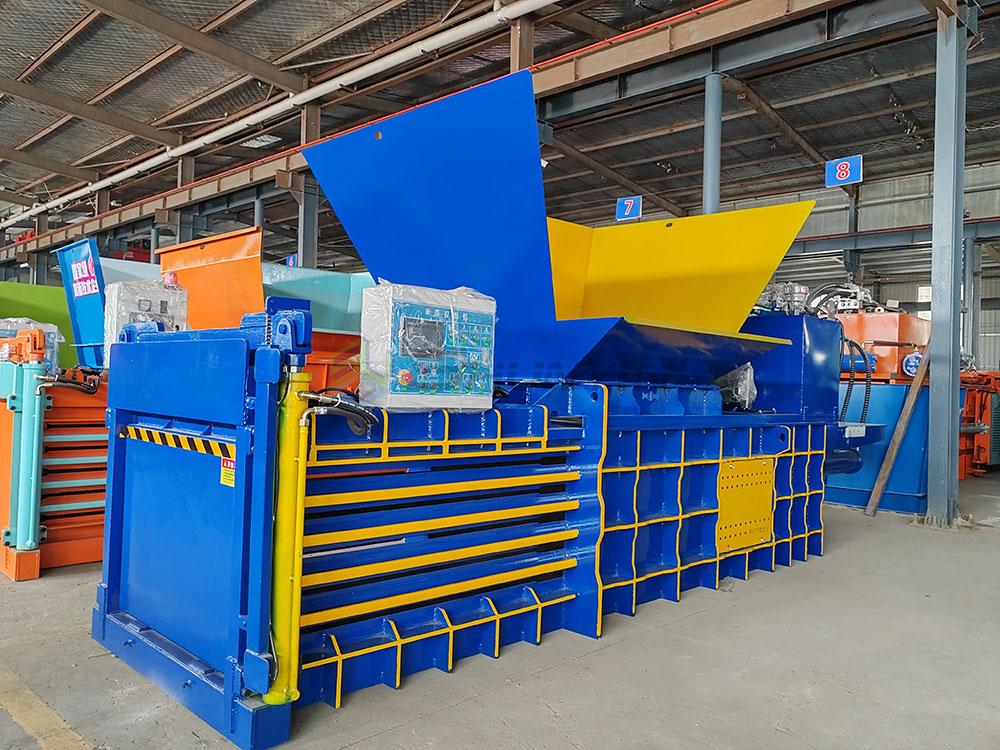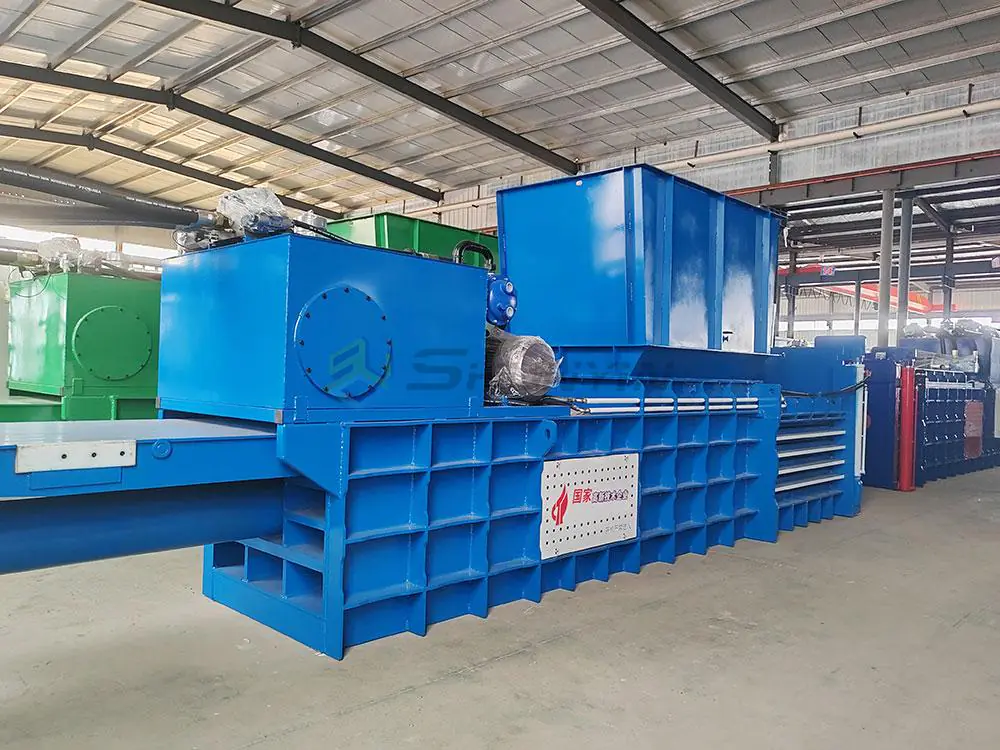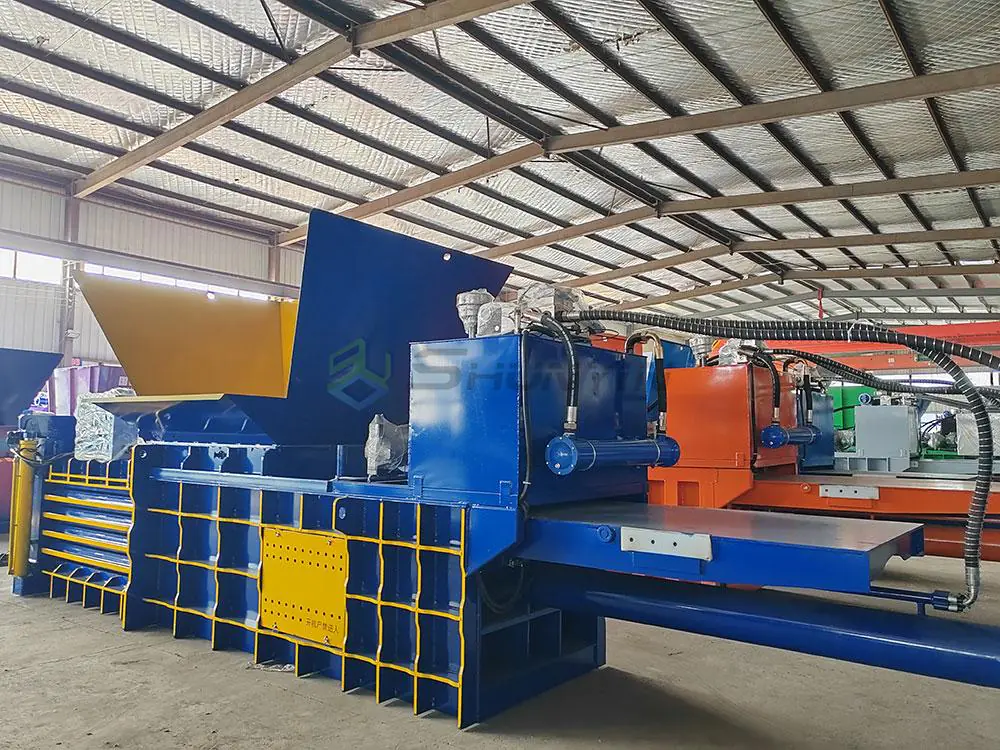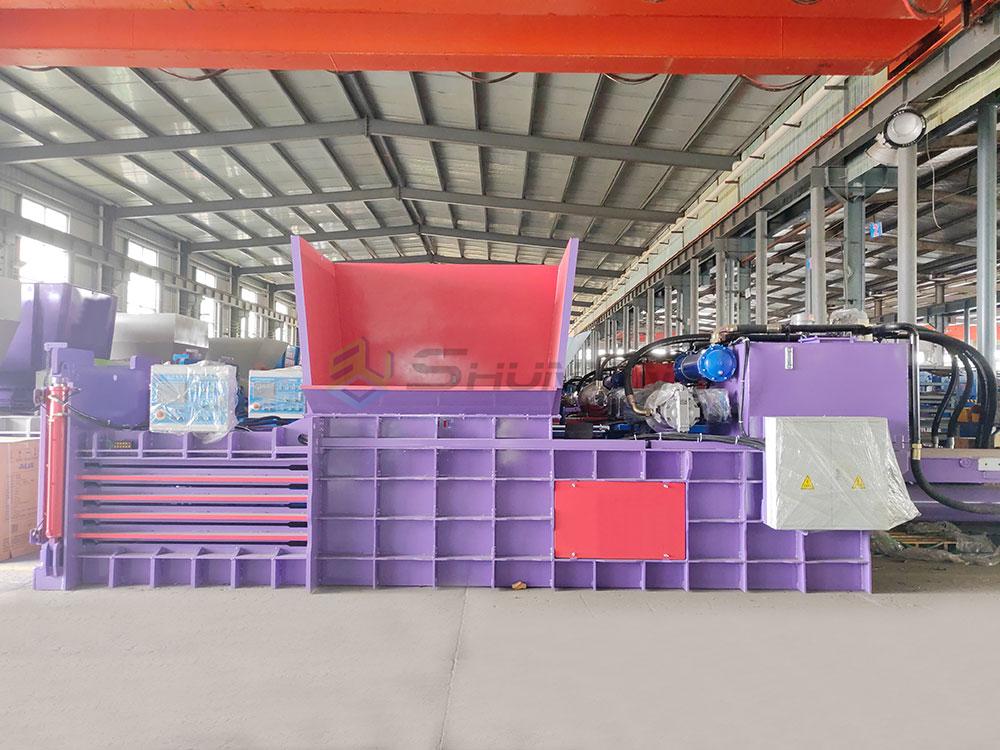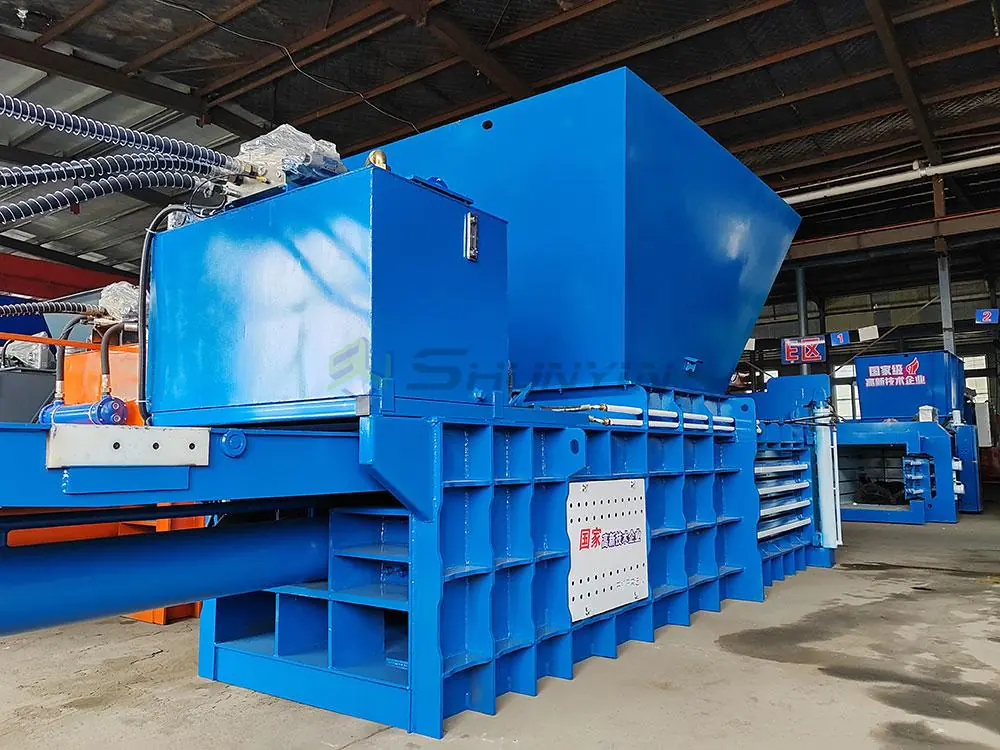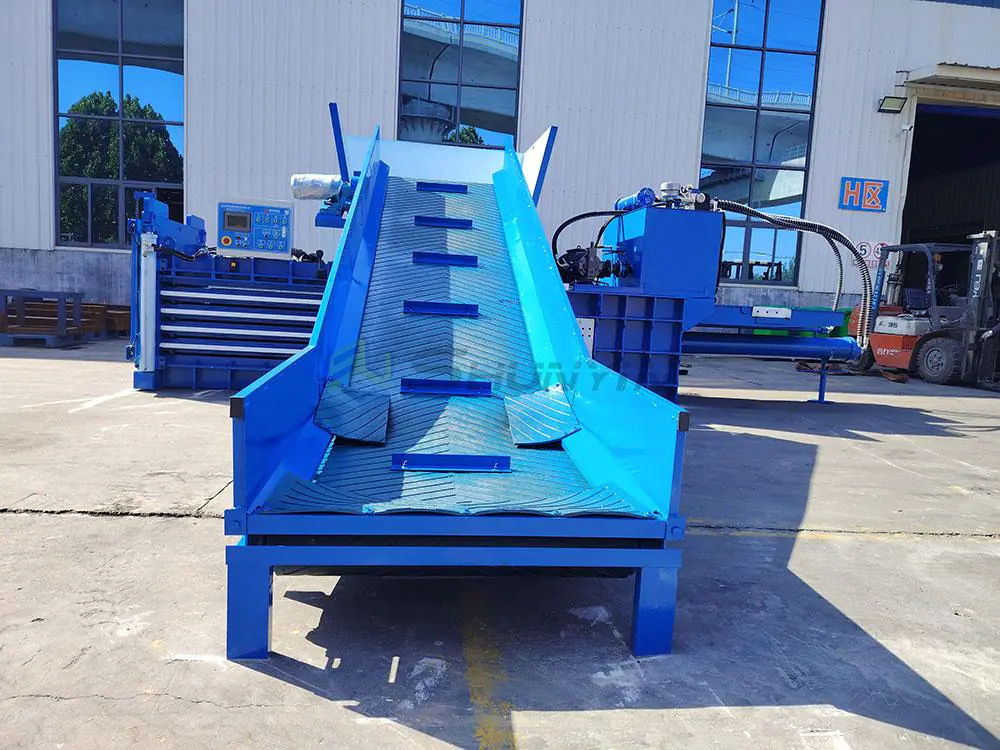Manual waste compaction wastes labor hours daily. Productivity bottlenecks frustrate managers. Automatic horizontal balers eliminate labor dependency while transforming waste into profit.
Automatic balers compress materials with zero human intervention using self-monitoring PLC systems. They operate continuously through sensor-controlled cycles, tying bales automatically for maximum efficiency – turning 10-hour jobs into 2-hour operations.
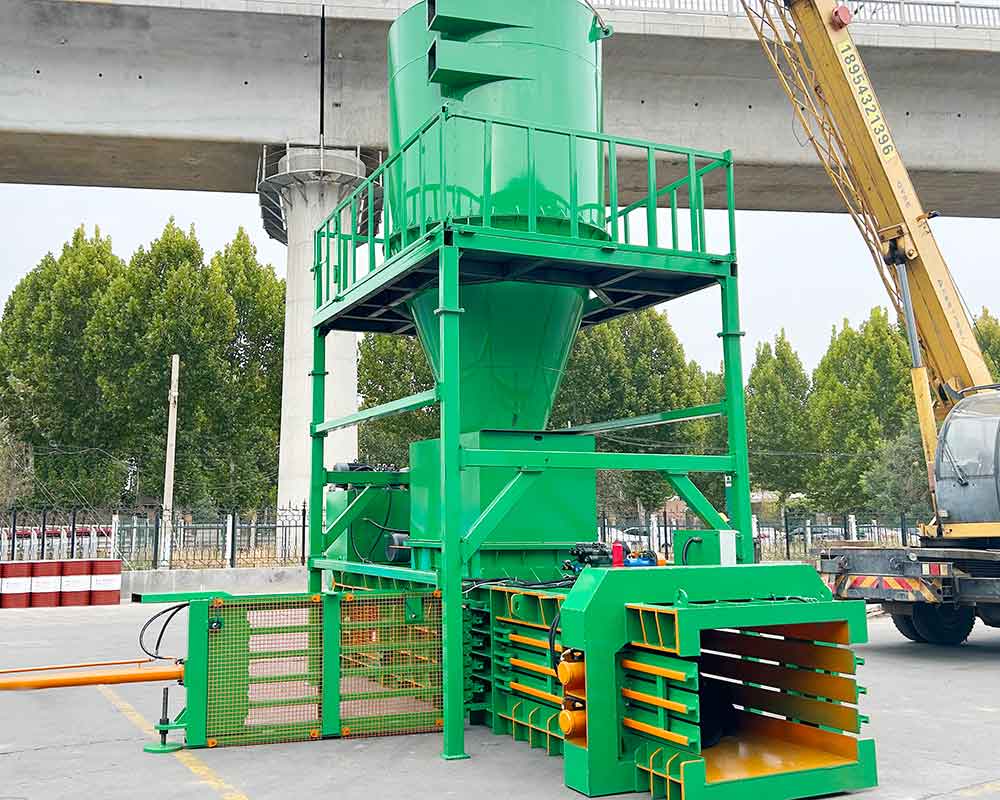
Discover how automation redefines waste processing economics as we detail these systems’ remarkable capabilities.
What Exactly Is an Automatic Baler?
Workers manually tying bales risk repetitive strain injuries. Human-paced operations create workflow gaps. Definition clarity prevents equipment mismatches.
An automatic baler processes materials without operator involvement using PLC-controlled compression, self-tying mechanisms, and automated ejection—essentially functioning as self-contained baling production lines.
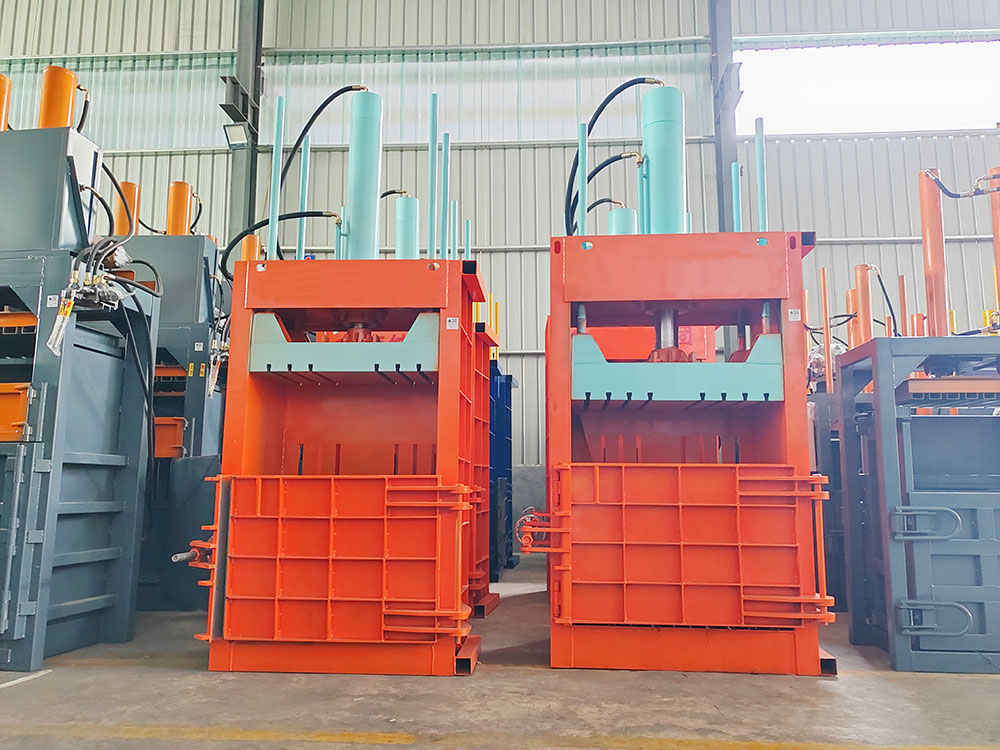
Core Systems Enabling True Automation
Understand the engineering behind autonomous operation through critical subsystems.
Automated Function Matrix
| System | Manual Balers | Automatic Balers (Our Models) | Benefit Multiplier |
|---|---|---|---|
| Material Feeding | Worker loading | Conveyor belt sensors | 3× faster intake |
| Compression Cycle | Lever-activated start | Laser density triggers | Unattended cycles |
| Bale Tying | Hand-tied wires/twine | Robotic arm knotting system | 100% consistency |
| Fault Detection | Human observation | Pressure/temperature auto-alerts | Prevent downtime |
| Output Handling | Manual removal | Push-plate ejection to rolling cart | Zero labor |
Integration complexity impacts reliability. Our systems feature German-made Siemens logic controllers pre-programmed for 22 material types. Power disruption causes system freeze-ups – we include automatic restart sequences recovering lost cycles. Labor cost advantages prove substantial. One SY-A900 replaces six workers, paying back your investment in 14 months. Maintenance differs dramatically too. Automatic models require smart sensor calibrations – our remote diagnostics prevent $9,000 service calls.
Test automation with your materials. Visit ShunYin Machinery for free throughput analysis – bring problematic wastes for custom programming.
How Do Auto Balers Achieve Continuous Operation?
Human-paced cycles limit productivity. Equipment idle time wastes electricity. Process understanding eliminates operational misconceptions.
Auto balers complete compression cycles through sensor feedback loops: density sensors activate hydraulic rams, position triggers initiate pre-programmed tying sequences, and weight detectors eject finished bales onto conveyors autonomously.
Operational Sequence Breakdown
Follow the five-step production journey from waste to finished bale.
Cycle Flow Analysis
| Stage | Action Mechanism | Duration* | Failure Prevention |
|---|---|---|---|
| 1. Infill Detection | Infrared material presence sensors | Variable | Overfill shutdown |
| 2. Pre-compaction | Low-pressure ram adjustment | 45-90 sec | Fragile material protection |
| 3. Main Compression | 150-ton hydraulic cylinders | 120-300 sec | Overload relief valves |
| 4. Auto-tying | Twine spooling + knotting servo arms | 45-60 sec | Wire tension monitoring |
| 5. Discharge | Gravity-drop ejection + conveyor | 30 sec | Obstruction detection systems |
*Based on SY-A600 textile processing
Cycle consistency creates higher profits. Moisture-resistant sensors enable reliable operation in humid recycling facilities – we use IP67-rated components. Material variations require adaptability. Mixed plastic streams activate material-specific pressure profiles through RFID tags on feed containers. Safety systems differ critically too. While manual balers need physical guards, automatics use light curtains permitting closer workflow integration.
Performance verification prevents surprises. Email [email protected] your daily volume targets for tailored ROI calculations. Include your toughest materials.
Conclusion
Automatic horizontal balers deliver labor-free, continuous waste compaction through sensor-driven cycles that optimize density consistently while eliminating operational bottlenecks.ShunYin Machinery


